Abstract
Singapore has always been a small and open economy that is heavily reliant on food imports to feed the burgeoning population. Since the city-state’s independence just over half a century ago, our food imports have grown to be 3.5 times the annual GDP. Singapore is also comfortably ranked as the most food secure nation in the world (according to the global food security index), despite being land scarce and only locally being able to produce slightly over 10% of our food needs. We would have been on track to achieving a higher percentage of locally produced food by 2030 while gradually reducing our reliance on imported food.
Until COVID-19 struck.
With the recent developments over the past 6 months, demand and supply chains have been thrown into disarray. People who are accustomed to seeing shelves fully stocked with fresh produce and international imports suddenly found themselves left with little or no choice. This constant reliance on foreign produce is unsustainable, making it crucial for Singapore to look to technology and local interventions to rebalance our food supply stability.
Hope
In the age of globalisation and capitalism, the concept of food sovereignty no longer rests solely on a country’s ability to locally produce all food needed for the country’s sustenance. However, the reliance on capitalism for the majority of food production inherently comes with negative socio-economic externalities such as the unpredictability of global food supply chains and the compromisation of food ideals for profit. By questioning our supposed dependence on capitalistic food production in Singapore, in spite of land scarcity and competing land uses, how can Singapore as a nation harness social efforts and technology as propagators for greater self-reliance and sustainability in the food industry?
Conclusion
This thesis posits that the whole food supply chain needs the active engagement of all stakeholders (producers, the Government, and community) in order to facilitate a more balanced and sustainable food system. By adopting an alternative and more transparent food production system, this thesis explores the possibility of integrating an urban agricultural food system within Singapore’s heartland communities in redefining our relationship with food and its valuation within our society. By proposing an urban food commons strategy driven by local initiatives, through the harnessing of future vertical farming technologies, food sovereignty and a stronger common food identity can be achieved.
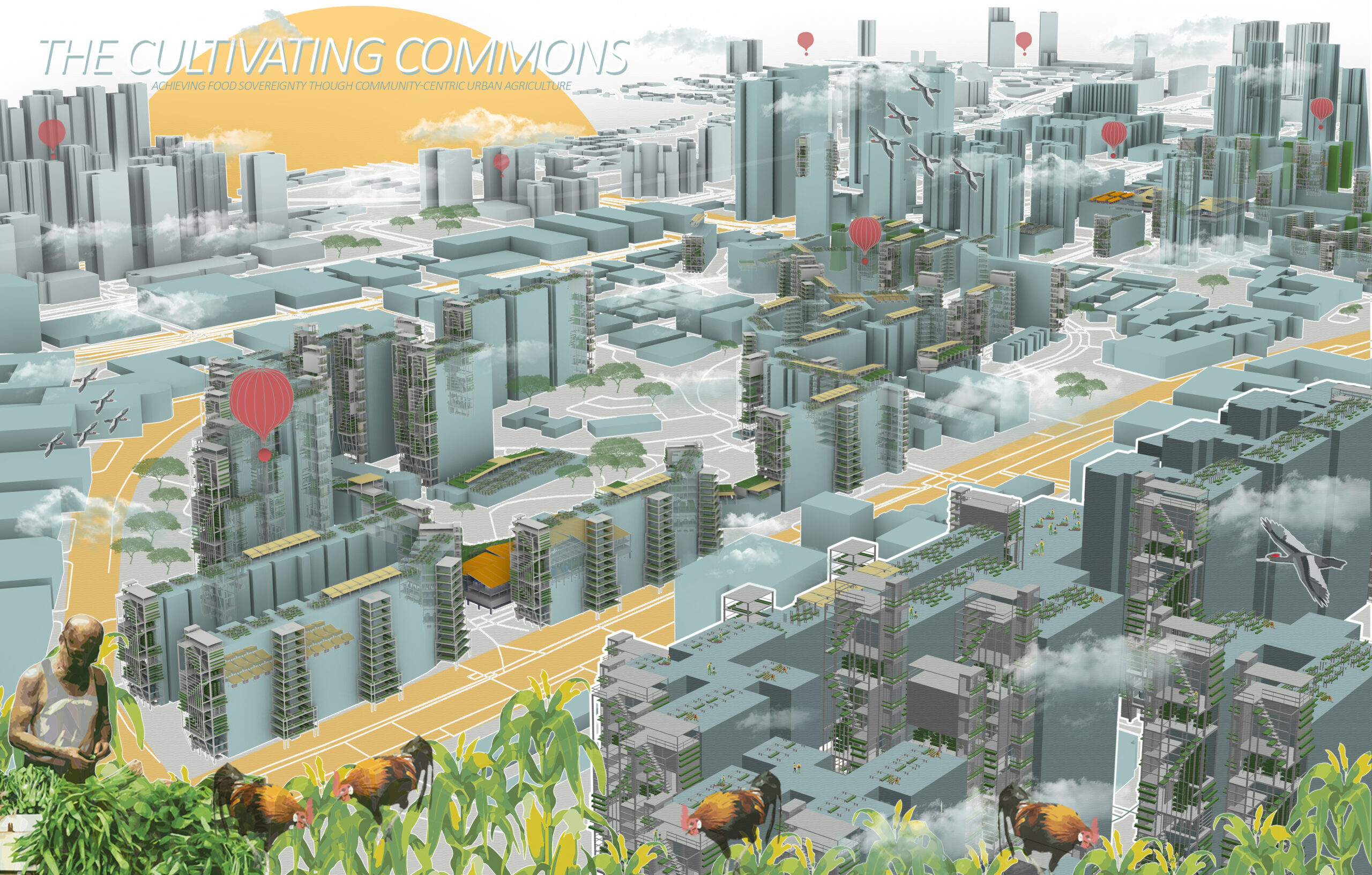
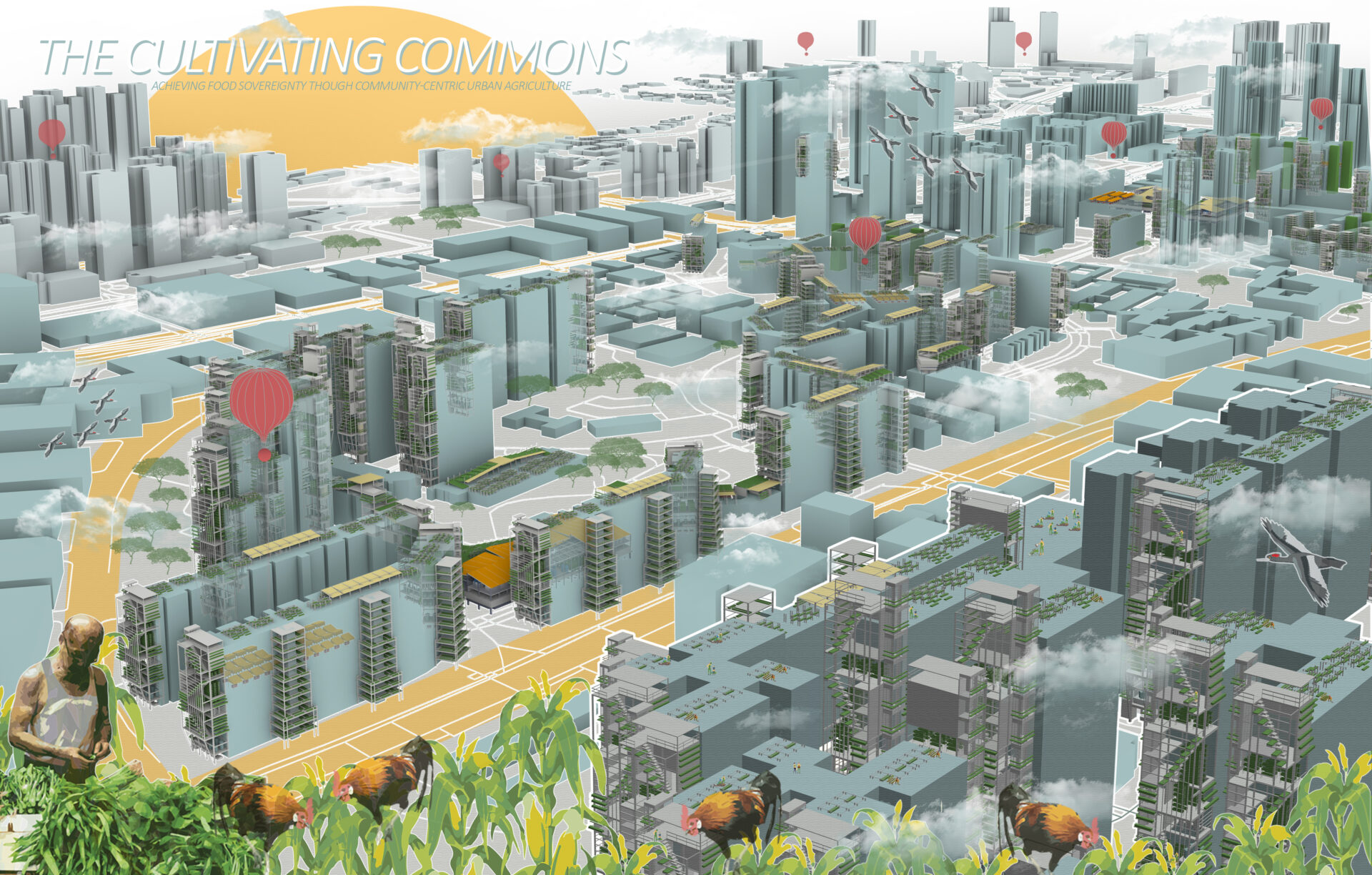
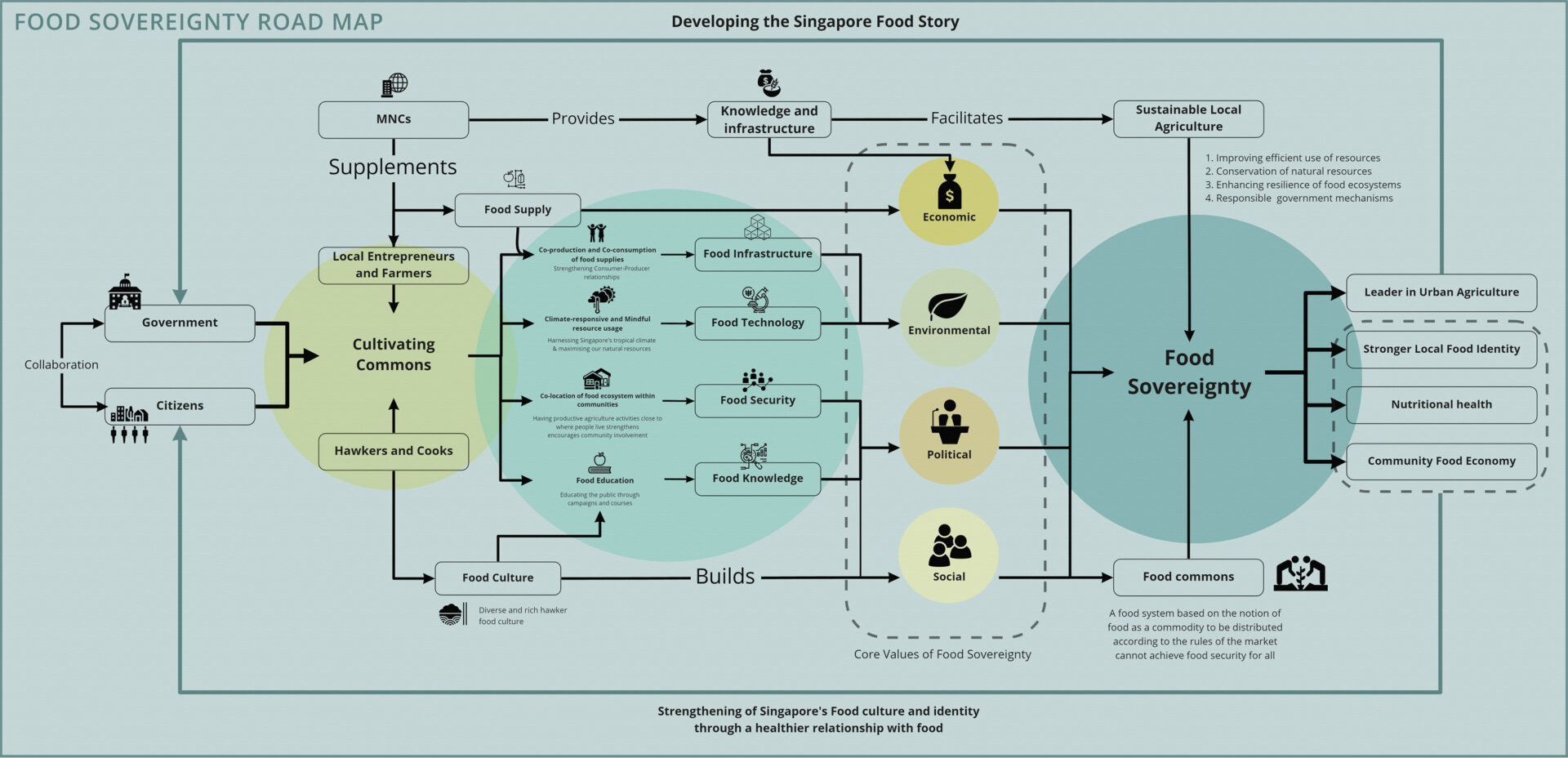
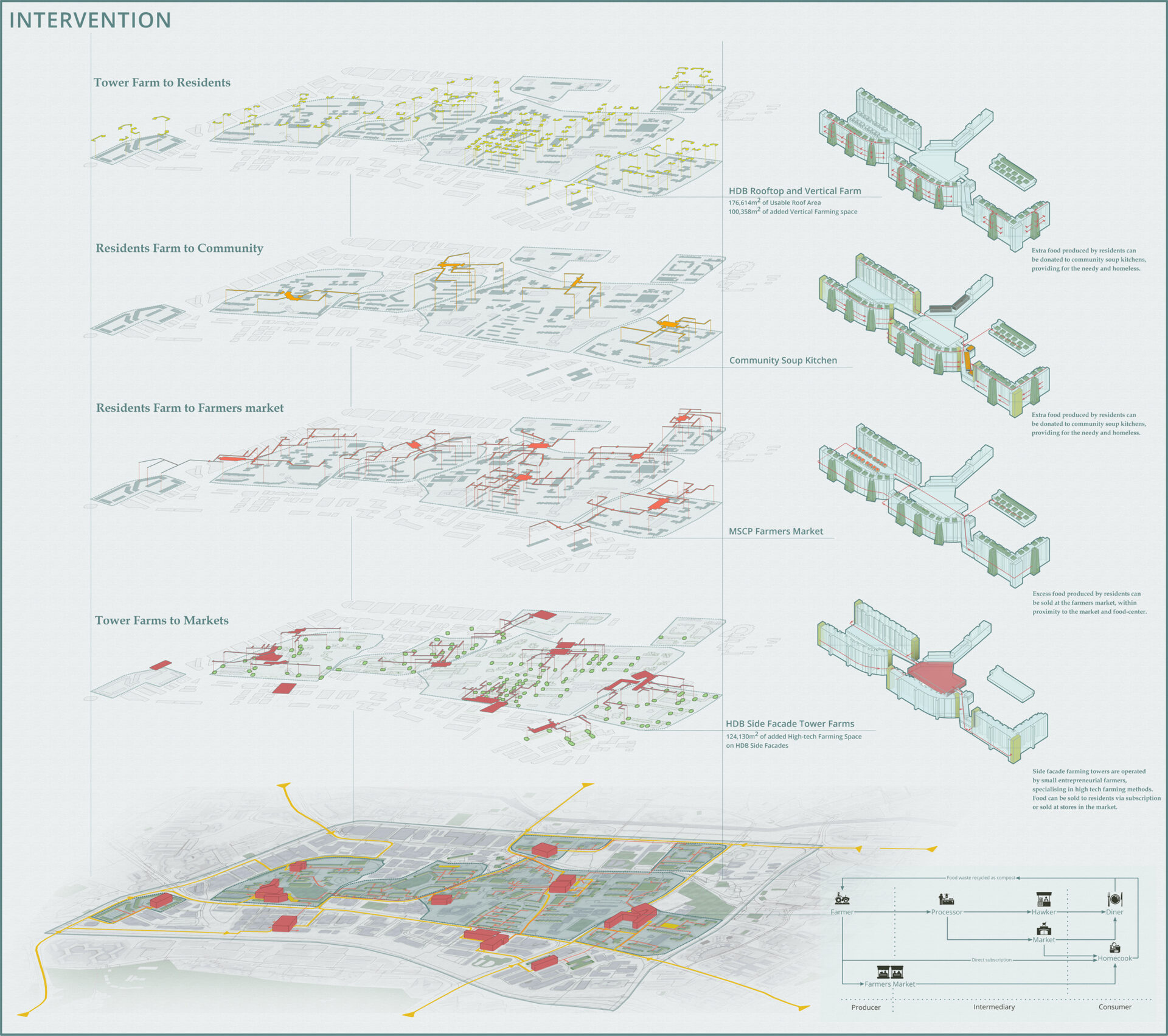
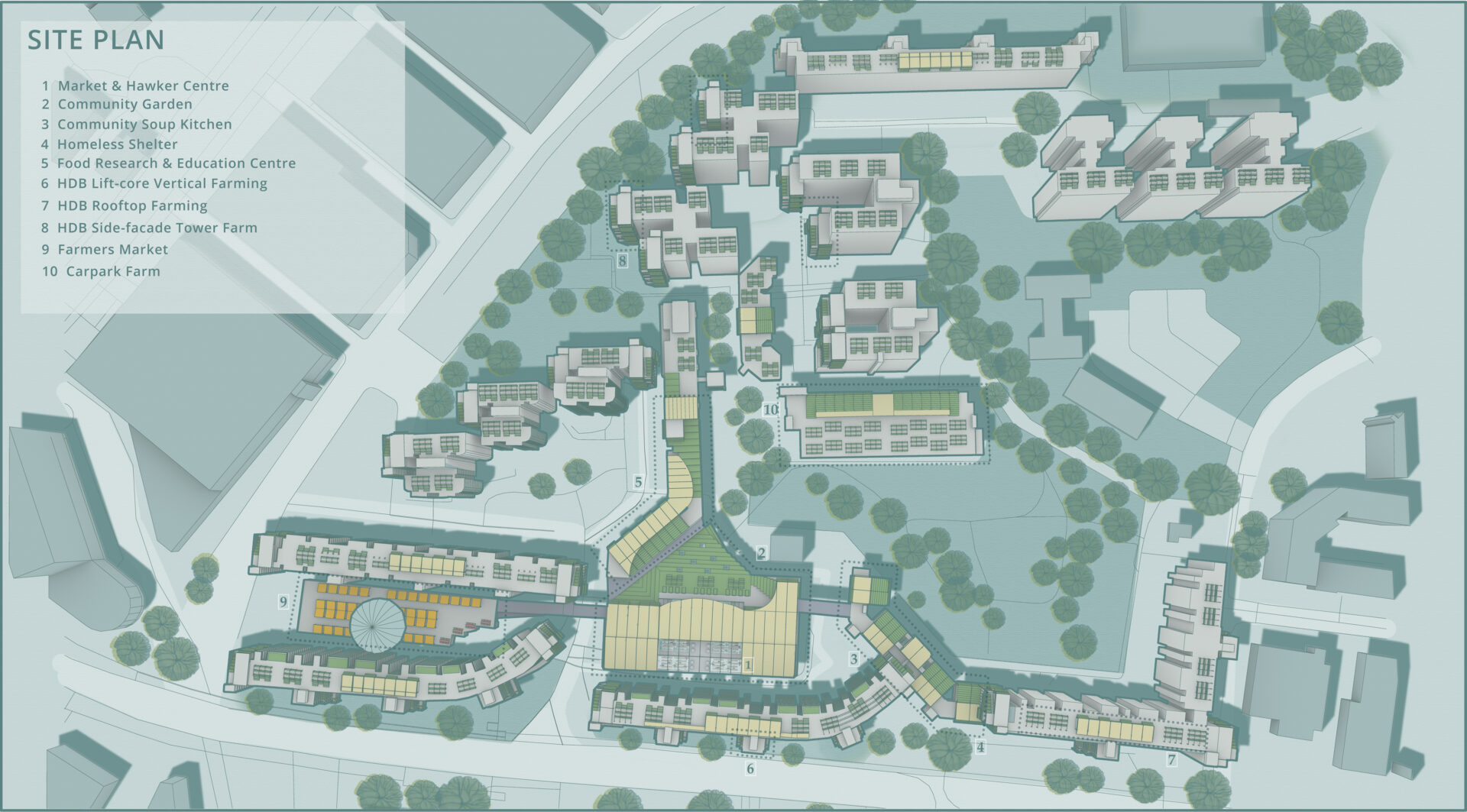
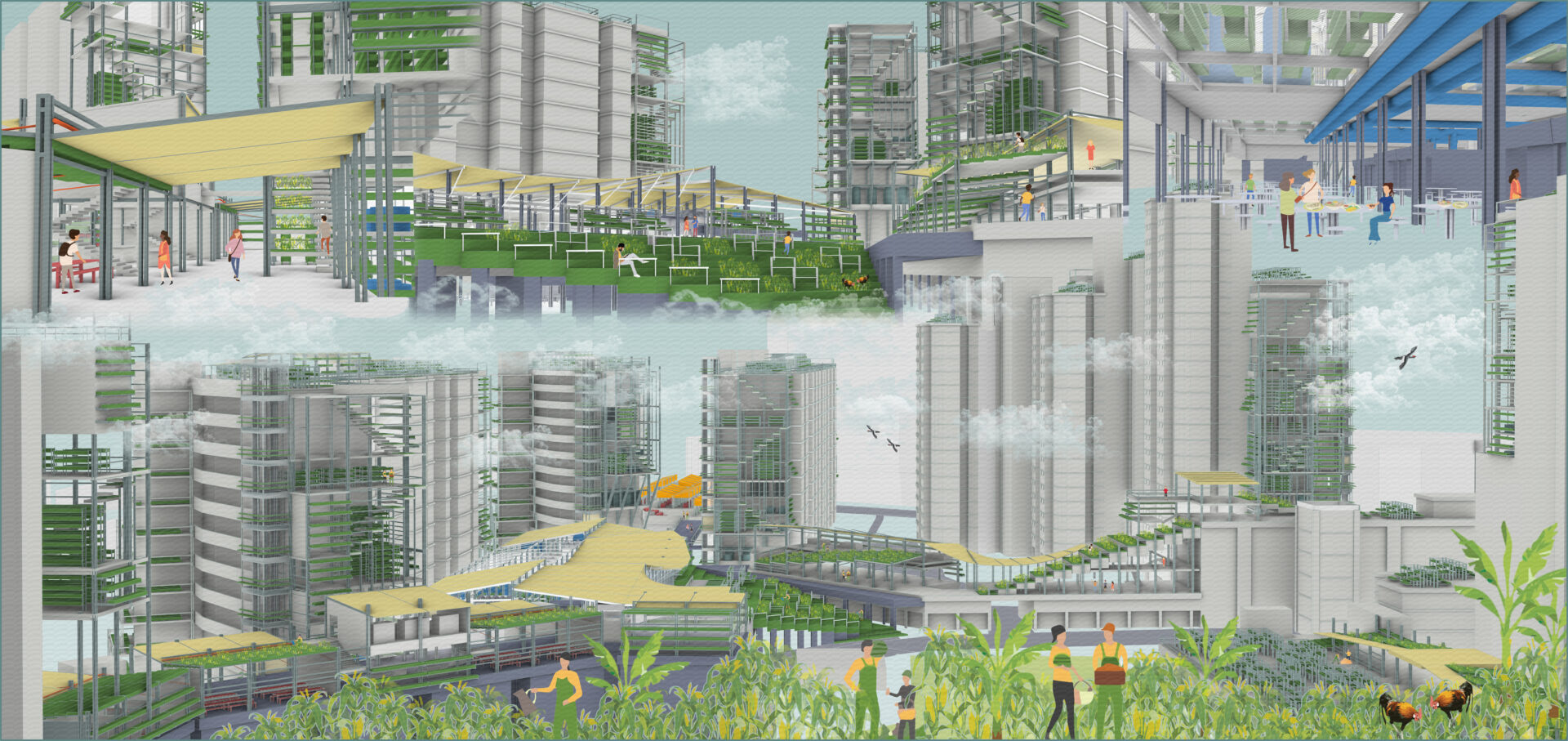
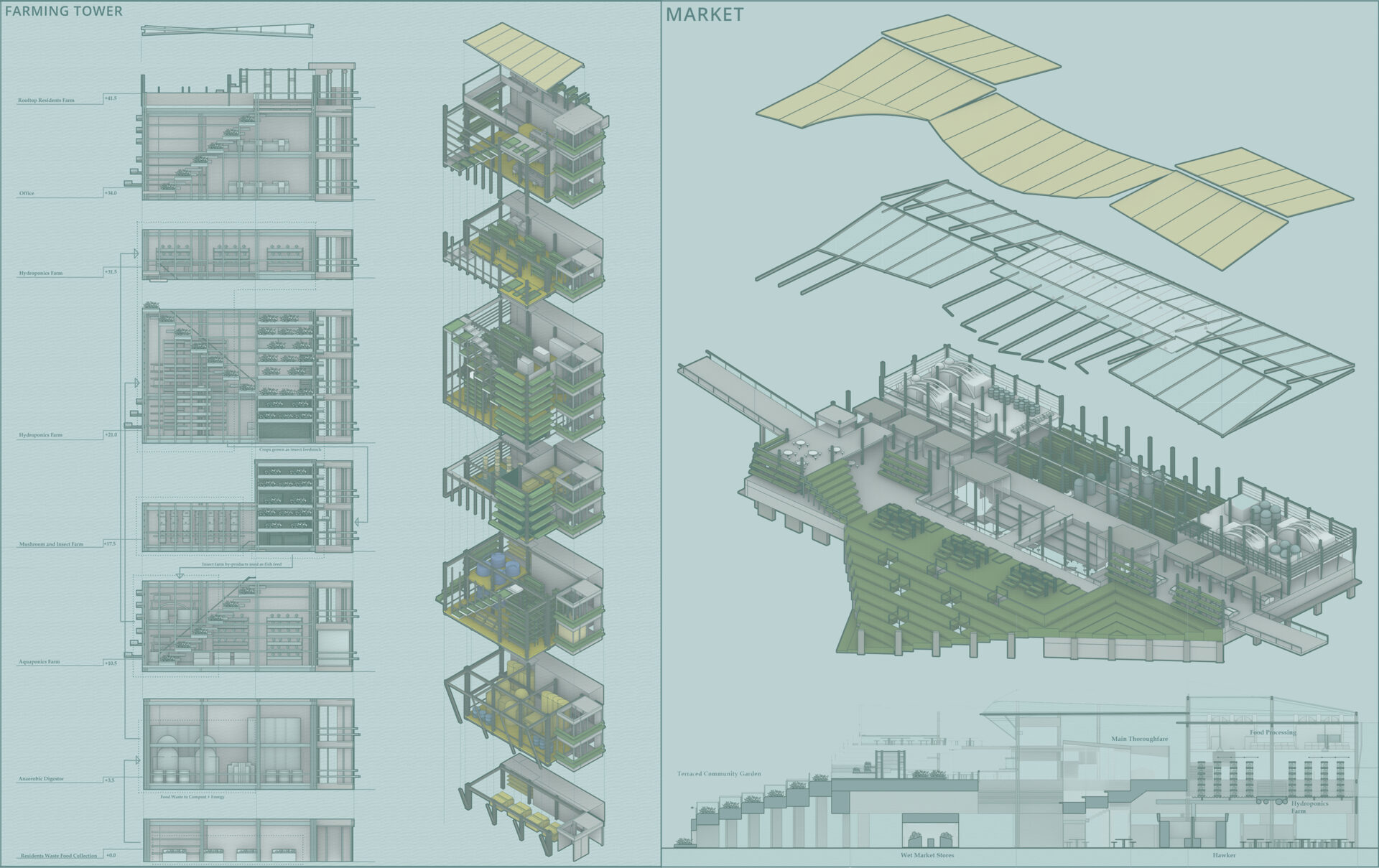

Supervisor's comments:
In land-scarce Singapore, this project tackles the crucial issue that is caused by heavy dependance on imported food supplies. The COVID-19 Circuit Breaker in 2020 reminds us that supply chains in Singapore are both important and highly vulnerable at the same time. Different from other urban farming projects, this thesis aims to promote an active engagement of all stakeholders to facilitate a more balanced and sustainable food system. The goal of this project certainly redefines and enriches the values of urban farming within our society. I wish we would have this kind of communities that provide more resilient and health living environment in Singapore soon.
- Asst. Prof. Yuan Chao (Dr.)